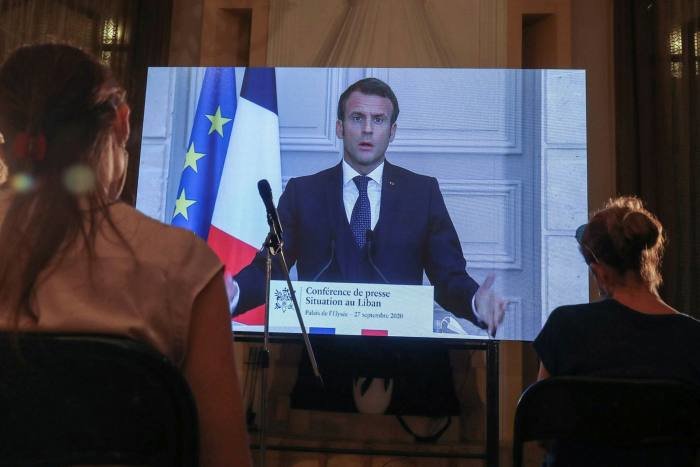
Heart-wrenching Lebanon may yet have better days
I expected that coming back to my homeland would be heart-wrenching. As I stood amid Beirut’s devastation, I watched shell-shocked citizens sweep up the remains of their homes and businesses.
The cataclysm of the August 4 blast that destroyed the port, took or ruined the lives of multitudes and laid waste to much of the city, coincided almost exactly with the 100th anniversary of modern Lebanon’s founding in 1920.
I wondered if history was now conspiring to bury Lebanon, or if there was still a path forward beyond survival, towards revival and renewal.
Like most Middle East states, modern Lebanon was engineered by colonial powers after the defeat of the Ottoman Empire. Le Grand Liban was established by the French, amalgamating the autonomous Ottoman province of Mount Lebanon with four Ottoman provinces on the coast and inner Bekaa Valley.
As the country’s first century came to a close, French president Emmanuel Macron shuttled between Paris and Beirut in a bid to stave off complete collapse.
From where many Lebanese stand today, it has been a tragic 100 years. Sectarian jealousies at the country’s creation still dominate parties and politics. Dependence on foreign intervention or influence, which gave birth to the new state, is still the modus operandi of Lebanon’s leaders.
And the country is still the playground of regional conflicts. After 1948, Lebanon hosted Palestinian refugees fleeing Israel’s establishment, and eventually became a battleground for the Israeli-Palestinian and Israeli-Arab conflict. More recently, it has become a proxy battleground between Iran and Israel.

But Lebanon also has an alternate history. Over the past century, different communities lived and governed together, a pluralist society thrived in a region dominated by authoritarianism and repression, and civic and national identities gained traction. Beirut emerged as a cultural capital of the Arab world — an Athens in a sea of Spartas.
Indeed, the October 2019 protests represent this other Lebanon: a spontaneous movement brought thousands on to the streets to demand the downfall of the ruling oligarchy and an end to sectarian and corrupt government.
Yet the oligarchy cares little for the cries of its people. Even before the August explosion, the national currency had collapsed, people’s savings had been wiped out and unemployment and poverty was skyrocketing. Returning this month, I also saw how Covid-19 had spread its own brand of misery.
Lebanon needs profound change: a new form of politics, where citizens take charge of their fate and choose their own leaders rather than follow in sectarian herds.
It needs a civic and meritocratic state that governs in transparency and according to the rule of law; and a state that insists on full sovereignty over its territory rather than negotiate its dominion in bits and pieces with Hizbollah, a group armed and financed by a foreign power.

Sadly, Lebanon is unlikely to get that. Mr Macron’s initiative started out with high hopes of convincing the oligarchy to stand aside, at least temporarily, and allow an emergency government of capable independents to undertake the urgent reforms needed to stem economic collapse and start a recovery. But the initiative was stymied from the start, and collapsed on September 26 as parties failed to agree on the distribution of ministerial portfolios.
Hizbollah, the dominant party, apparently concluded that its ruling coalition can muddle through the economic and political crisis, without a deal with France and a bailout from the international community — help that would force the reforms and transparency that none of the oligarchy wants. The Hizbollah coalition seems unbothered that its decision not to grasp France’s lifeline will also drive millions deeper into misery.
The international community is rightly concerned about Lebanon. Its stability is key to the stability of the Middle East and the eastern Mediterranean. The challenge is how to provide urgent assistance to a state whose incumbents insist on driving it into the ground; how to press for necessary economic and social reforms; and how to encourage an open political process where domestic forces for change can grow. The next serious attempt at government formation is likely to await the outcome of November’s US election.
As I boarded my plane at the end of my visit, I couldn’t help but weep for my homeland, and gape at the abyss between the aspirations of its people and the cravenness of its political bosses. But I also knew that Lebanon was worth saving, and that there should be brighter days ahead in the country’s second century.











